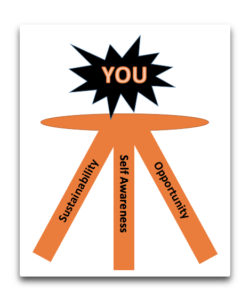
According to Safe Harbour Trauma Recovery, post-traumatic stress disorder, or PTSD, is a mental disorder caused by a traumatic experience. When an individual is suffering from it, they are unable to cope or move forward from the traumatic event, and ultimately, the individual experiences a continuous cycle of reliving the experience or experiences during times that trigger it.
The notion of PTSD has evolved over centuries to reflect societal perceptions. After the American Civil War, it was known as “soldier’s heart.” After the two World Wars, it was called “shellshock.” Since that time, PTSD has undergone many clinical definition changes.
One thing is for sure. The PTSD name is slightly miscategorized. Experiencing stress because of trauma is not necessarily a disorder. It is the natural and lasting reaction to situations that are abnormally poignant and disturbing. People can experience symptoms of PTSD in extraordinarily stressful but not physically dangerous situations. It doesn’t take a war situation to alter perception negatively. Everyday life situations can subject people to stress that results in negative feelings.
Horrible Family Situations
Daily fighting amongst family members can produce the continual feeling of failure. Family arguments create the sense that living in a household is toxic and dangerous. Past arguments have lasting effects that tend to dictate how future behaviors will unfold. And even if divorce and settlement do happen in an attempt to quell the situation, drawn-out proceedings can make things much worse. While it’s true that there are options to make that side of things easier, divorce is still messy and probably contributes to familial trauma.
Bad Work Environments
Sometimes, corporate demands are devoid of humanity. People who work in demanding jobs often experience stress levels that go beyond all reasonable boundaries for the position. The fear of losing a job if all demands are not met seeps into every aspect of life.
Disturbing Dreams
The night is the time that some people dread. When dreams occur, they can bring about disturbing images and mental situations that remind the dreamer of past stressful events. Alarming dreams can interrupt healthy rest patterns while affecting all other aspects of an ordinarily productive daily life.
Constant Barrages of Responsibility
Everyone must endure the hounding of things like paying bills and having to perform adult tasks. Certain life circumstances create situations that are unmanageable for some people. The unfriendly and impersonal daily reminders of debts and duties can elevate stress levels to unbelievable heights.
Social Worries
Due to the advancements of social media proliferation, some people can be overwhelmed with the need to match societal expectations. A compulsion to continually compare oneself with others is an endless game that is never won. The need to meet other people’s expectations can be immensely stressful and can create unique versions of performance stress.
It is very common to be involved in extraordinarily stressful but not physically dangerous situations. Counselors trained in recognizing and countering the effects of stress are significant resources for people suffering from harsh past experiences. For most, a life coach is able to suggest actions to counter negative feelings. A long-term mentor can guide anyone through a personal struggle, and there are various ways in addition to therapy on how you could approach change in your life. Seeking help with PTSD, in all of its forms, is nothing to be ashamed of. It is a proactive and positive step toward a more free and productive life.





 If you’re unhappy with your current career or role in your job, retooling your thinking about careers or options for a different role in your industry all start by learning more about them.
If you’re unhappy with your current career or role in your job, retooling your thinking about careers or options for a different role in your industry all start by learning more about them.  Are you struggling to enjoy your relationship? It might need some retooling as well. It could be
Are you struggling to enjoy your relationship? It might need some retooling as well. It could be 
 Business Skill 1: Communication
Business Skill 1: Communication